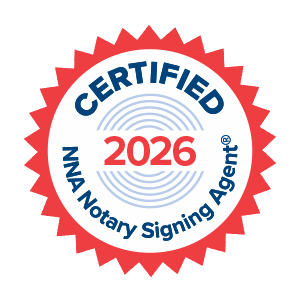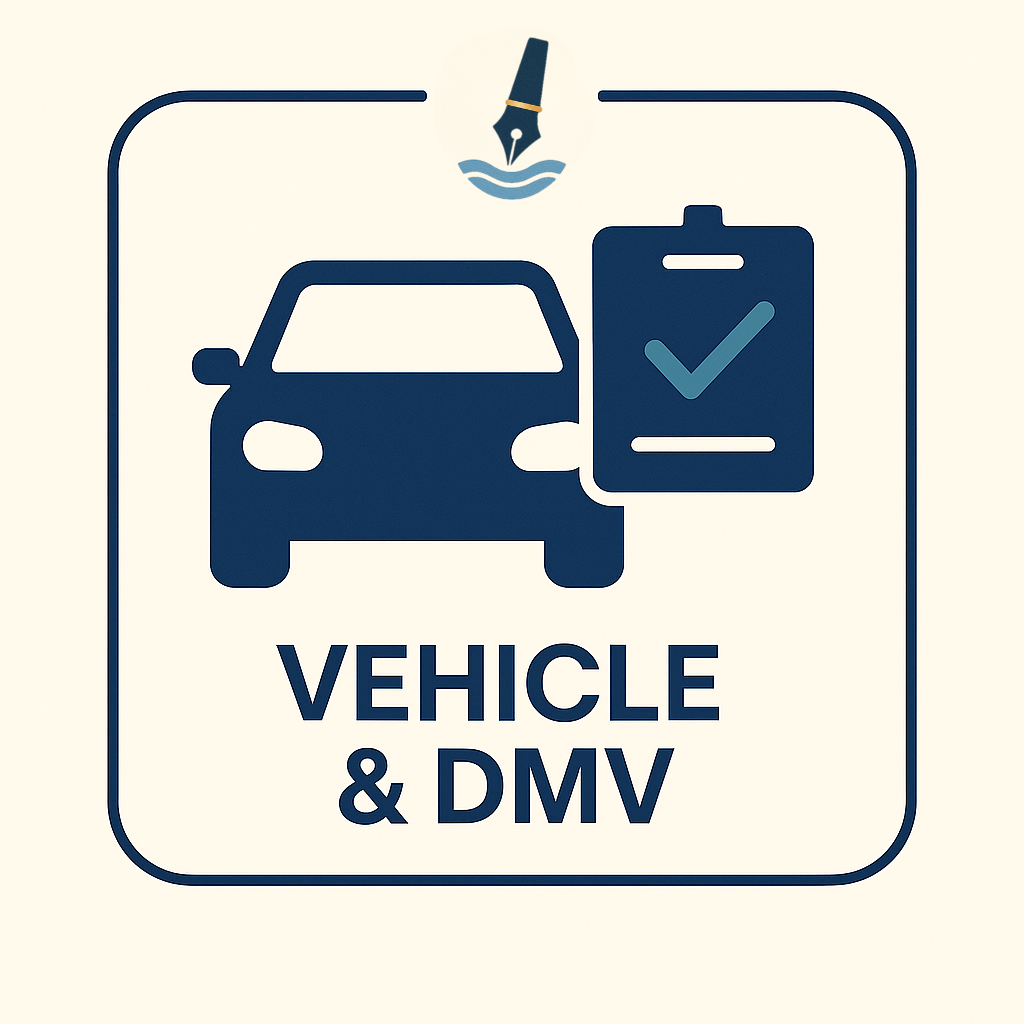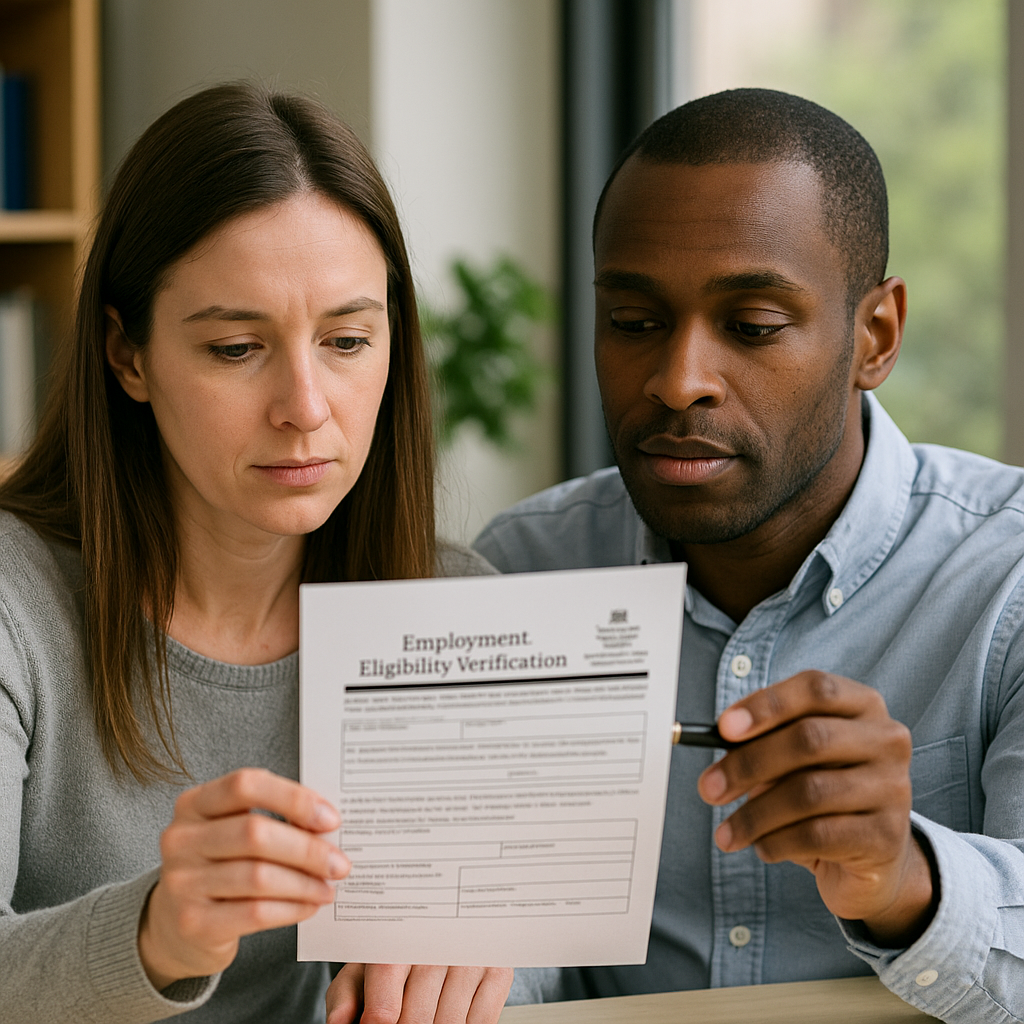

When vehicles are towed, impound yards often require notarized forms before release. Lake Mead Mobile Notary offers on-site notarization for vehicle release forms, storage affidavits, owner notifications, and lien documents at tow yards across Las Vegas.
This service is for vehicle owners, storage staff, repossession agents, and title companies needing notarized documents for DMV or legal purposes.
Prices shown before any venue parking fees or special access requirements. Exact totals are displayed in the booking portal before you confirm.
Schedule our on-site notarization service at any Las Vegas tow yard.
Book On-Site NotaryYes. Nevada law (NRS 108.297) requires you to account for and pay any surplus from the lien sale. After recovering your documented towing, storage, and auction fees, you must pay excess proceeds first to lienholders, then to the vehicle owner. You cannot simply keep all auction proceeds because you obtained clean title through VP-147. This is one of the most misunderstood aspects of Nevada lien sales.
A shocked Reddit discussion illustrates the confusion: "I always thought the right thing would be for the tow vendor to pay any excess from the sale over their storage costs to the lienholder but they take possession of the whole vehicle?" The answer: Taking possession for lien sale is legal, but keeping surplus proceeds beyond documented costs is illegal conversion of property.
📋 Nevada Surplus Distribution Hierarchy (NRS 108.297):
⚠️ Real-World Example of Surplus Calculation:
Different scenario - No lien on record:
💡 Why This Matters for VP-147 Compliance: When you sign your notarized VP-147 affidavit, you're swearing under oath that you followed Nevada's lien sale procedures. Part of those procedures is accounting for surplus. If the owner later discovers you kept $5,000 in surplus that legally belonged to them or their lender, you face: (1) civil lawsuit for conversion, (2) potential perjury charges for false VP-147 affidavit, (3) loss of your tow operator license, (4) criminal charges for theft by conversion.
🏢 Best Practice for Tow Operators: Create a standard surplus calculation worksheet for every lien sale. Document: (1) Auction gross proceeds, (2) Itemized costs (towing, storage with daily rate and number of days, title search, certified mail, auction fees), (3) Net surplus calculation, (4) Lienholder payment if applicable with proof of payment, (5) Owner surplus payment with certified mail proof of delivery. Keep these records for 3-5 years. When we notarize VP-147 forms at Sun City Aliante or other Clark County tow yards, we can review your surplus calculation to ensure it's properly documented before you sign under oath.
Yes, you can proceed with VP-147 lien sale even if certified mail returns as "undeliverable," "attempted - not known," or "refused." Nevada law requires you to attempt proper notification at the DMV-registered address, but you're not responsible if the owner moved without updating their address or refuses to accept the letter. The key is documenting your good-faith notification attempt.
This is the second most discussed lien sale question on automotive forums and r/legaladvice. Tow operators panic when certified mail comes back weeks after sending, thinking the entire lien sale process must start over. That's not correct. What matters is that you sent notification to the correct address on file with Nevada DMV at the time you mailed it.
📋 How to Document Undeliverable Certified Mail for VP-147:
⚠️ Critical Distinction - Undeliverable vs. Never Sent: Nevada courts and DMV distinguish between "mail returned undeliverable" (proper notification attempt) and "mail never sent" (no notification attempt). If you skip certified mail entirely and claim the owner "couldn't be found," your VP-147 will be rejected and you could face liability for wrongful sale. But if you can prove you sent certified mail to the DMV-registered address and USPS returned it undeliverable, you've met Nevada's notification requirement.
💡 The 30-Day Waiting Period Starts When You Mail It: Confusion exists about when the clock starts. The 30-day waiting period begins on the date you send certified mail, not when it's delivered or returned. Example: You mail certified letters on May 1st to owner and lienholder. Owner's letter is delivered May 4th (signed green card returned). Lienholder's letter returns undeliverable May 8th. You can still proceed with lien sale on June 1st (30 days after May 1st mailing date) because you attempted notification to both parties.
🏢 Real-World Example from Las Vegas Tow Yard: Tow company in Boca Park area towed abandoned vehicle from apartment complex. DMV records showed owner at an address in Henderson. Certified mail sent September 1st, returned "moved - no forwarding address" September 9th. Tow company kept the returned envelope, waited until October 2nd (31 days after mailing), then had VP-147 notarized at their facility. Auction accepted the vehicle because notification attempt was properly documented. The vehicle sold, title transferred to buyer with no issues.
⚠️ When Undeliverable Mail Becomes a Problem: If certified mail to the lienholder (bank) returns undeliverable AND you cannot locate the bank through research (merger, acquisition, failure), consult an attorney before proceeding. While owner notification can be satisfied with undeliverable mail, lienholder notification may require additional steps if the lien is recent and valuable.
Yes. Nevada law (NRS 108.270) requires you to send certified mail, return receipt requested, to both the registered owner AND all lienholders shown on the DMV title record. Missing either notification invalidates your entire VP-147 lien sale process, even if you properly notified the owner. This is the number one reason auction houses reject VP-147 submissions from tow operators.
The confusion is understandable. A former tow operator explains on automotive forums: "Tow company has to send 3 certified letters to both the titled owner and the lien holder over about 6 week period before they can lien sale the vehicle." But what happens when the lienholder is a bank that merged, went out of business, or has an outdated address on the DMV record?
📋 Nevada's Dual Notification Requirement Explained:
⚠️ What If You Can't Find Current Lienholder Information? If the lienholder on DMV records is a bank that no longer exists (merged, acquired, or failed), you have several options:
💡 The Most Common Mistake: Tow operators send certified mail only to the registered owner, assuming the bank "knows" the vehicle was towed because the owner stopped making payments. Wrong. The lienholder must receive independent notification of the impending lien sale. Without proof of certified mail to the lienholder (green return receipt or returned undeliverable envelope), your notarized VP-147 affidavit will be rejected by Pahrump auctions, Copart, IAA, and DMV during title transfer processing.
🏢 We provide on-site VP-147 notarization at tow yards throughout Aliante, North Las Vegas, and Clark County. During your notarization appointment, we can review your certified mail documentation to ensure both owner and lienholder notifications are properly documented before you sign the affidavit under oath.
Nevada DMV's official guidance states that NVL-003 submissions should include "original supporting documents demonstrating the vehicle was inoperable or stored during the suspension period." However, the exact documents accepted vary by DMV office and the length of your suspension. Most drivers face this dilemma: the car was simply parked in their driveway or apartment complex parking lot—how do you formally prove that?
📋 Accepted Supporting Documents (in order of DMV preference):
⚠️ For Suspension Under 30 Days: DMV typically accepts the notarized NVL-003 affidavit alone without extensive supporting documentation. The shorter the suspension, the less scrutiny. Most insurance payment failures that are corrected within 2-3 weeks qualify for NVL-003 without additional proof.
💡 Alternative Evidence When No Formal Paperwork Exists: If your car was simply parked at home and you have no repair receipts or storage invoices, DMV may accept:
🏠 Real-World Example: Insurance lapsed on March 1st, DMV suspended registration March 31st, you discovered it April 5th and obtained new insurance April 6th. Your vehicle sat in your Del Webb driveway the entire 5-day suspension. Supporting documents: (1) Notarized NVL-003 with correct dates, (2) Photos of vehicle in driveway taken April 1, 3, and 5, (3) Uber receipts showing rides to work April 1-5, (4) Brief signed statement from neighbor confirming they saw the car parked every day. This package is typically sufficient for DMV acceptance.
⚠️ Suspensions Over 90 Days Require Stronger Proof: If your registration was suspended for months, DMV expects compelling evidence the vehicle was truly dormant. "It was parked in my driveway" is less credible for 120-day suspensions. Consider whether traffic court penalty route is more appropriate if you cannot document long-term dormancy.
📱 We provide mobile notarization for NVL-003 throughout Mesquite, Las Vegas, and Henderson. During your appointment, we can advise on whether your supporting documentation appears sufficient based on our experience with hundreds of NVL-003 submissions across Clark County DMV offices.
Yes. Under Nevada law (NRS 487.560), you have the legal right to retrieve personal belongings from a repossessed vehicle without paying the full redemption amount. Tow yards must allow you to access personal property within reasonable hours, typically charging a $25-50 administrative fee for the retrieval service.
However, most Las Vegas tow yards require notarized authorization if you're not the registered owner or if there are title complications. This protects them from liability claims. Common scenarios requiring notarization include:
⏰ Critical Timeline: Nevada tow yards typically hold personal property for 30-45 days after repossession before disposal. Storage fees continue to accrue, so retrieving belongings quickly saves money. Lake Mead Mobile Notary provides same-day tow yard notarization service throughout Las Vegas and Henderson, meeting you on-site to notarize property release authorizations.
📋 What You Can (and Can't) Retrieve: Personal property includes clothing, tools, car seats, electronics, documents, and personal effects. You cannot remove permanently affixed equipment (stereo systems, GPS units, custom wheels) or items that are part of the vehicle's secured collateral. If disputes arise, notarized affidavits documenting ownership of contested items may be required.
No. The Nevada DMV Financial Responsibility Unit does not accept digital, scanned, or emailed DLD-68 affidavits. You must sign the form with wet-ink in front of a Nevada notary public, then mail or hand-deliver the original notarized document to DMV in Carson City. Remote online notarization (RON) is not accepted for DLD-68 forms in 2025.
Reddit threads frequently show drivers frustrated by this requirement, especially those trying to meet tight suspension deadlines. Nevada statutes mandate physical notarial certificates with raised seals for all DMV affidavits. Digital signatures, PDF submissions, and faxed copies are rejected outright. This is why same-day mobile notary service has become the standard solution for DLD-68 filers facing time-sensitive license suspension warnings.
📬 Accepted Submission Methods:
⚠️ Suspension Timeline: Most drivers receive suspension warning letters with 10-15 business days to respond. Mobile notaries serving Boulder City, Las Vegas, Henderson, and North Las Vegas ensure your DLD-68 is properly notarized and mailed before the deadline, with notary-sealed customer copies for your records.










